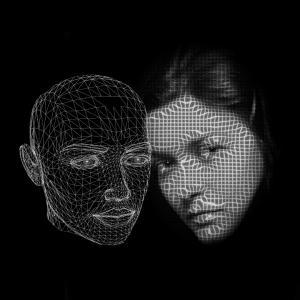
We’ve all had those nights where we can’t sleep because our thoughts just won’t stop swirling around. But for some individuals, this storm rages more frequently, heralding the unwelcome reality of sleep disorders. A surprising angle to consider is that sleep disorders could also be psychological, not just physiological.
Understanding Sleep Disorders
Sleep disorders are conditions that can disrupt your ability to fall asleep, remain asleep or achieve quality, restorative sleep. Common disorders include sleep apnea, insomnia, restless legs syndrome, sleepwalking, night terrors, and narcolepsy. These disorders can cause severe daytime fatigue, concentration problems, emotional instability, and a drop in overall productivity.

The Psychological Perspective

Sleep isn’t purely about bodily health. Our mental state has a substantial say in it too. Several sleep issues are rooted in both our psychological and physiological well-being.
Look at insomnia. While factors like our daily coffee habits or bed comfort matter, conditions like anxiety, depression, and ongoing stress often come into play. Notably, a study in “Sleep Medicine Reviews” suggests a significant overlap between chronic insomnia and anxiety disorders. ADHD individuals often face sleep-related challenges. Though medications and physical factors are involved, the “Journal of Attention Disorders” emphasizes the psychological aspect of their sleep difficulties.
Narcolepsy, known for inducing daytime drowsiness, sometimes gets triggered by strong emotions such as laughter or surprise. Restless Legs Syndrome (RLS), where people feel the need to move their legs often at night, can be intensified by stress and anxious feelings. Sleepwalking isn’t just about deep sleep. Emotional factors like stress and past traumatic experiences can influence its occurrence. Sleep-associated eating disorders, where people eat unconsciously at night, might be linked to mental stress and other psychological issues. Recurring nightmares or night terrors can also hint at underlying stress, trauma, or anxious feelings.
In sum, when thinking about sleep challenges, it’s key to recognize the intricate dance between our mind and body.
The Mind-Sleep Connection
So how do psychological elements wreak havoc on our sleep? Stress, anxiety and depression can lead to a hyperarousal state, making it challenging to fall asleep. Our minds can transform into a stage filled with worry, fear and concern, causing us to lose out on crucial rest.
Addressing Sleep Problems
While reducing caffeine intake, investing in a quality mattress and maintaining a disciplined sleep schedule can partially help, addressing the underlying psychological issues is critical for a long-lasting resolution.
This doesn’t have to be an uphill battle. Various therapeutic approaches, such as cognitive-behavioral therapy, can aid in managing sleep disorders by focusing on these psychological elements. CBT-I, or Cognitive Behavioral Therapy for Insomnia, addresses both mindsets and actions that might cause sleep issues. It aids in reshaping sleep routines and managing sleep-related anxiety. Research indicates its effectiveness often rivals or surpasses sleep medications, offering sustained relief without adverse effects.

Final Thoughts
So, are sleep disorders psychological? Yes, indeed! Sleep disorders spin a complex web of both physical and psychological aspects. It’s about time we broadened our view on sleep disorders and acknowledged the crucial role our psychological well-being plays in achieving a restful night’s sleep.
If you find yourself entangled in sleep disorders’ intricate web, remember, help is only a phone call away. Reach out to health professionals who can guide you towards catching those elusive zzz’s. After all, a good night’s sleep isn’t just a luxury; it’s a necessity!
Responsibly edited by AI
Other Blog Posts in
Animo Sano Psychiatry is open for patients in North Carolina, Georgia and Tennessee. If you’d like to schedule an appointment, please contact us.
Get Access to Behavioral Health Care
Let’s take your first step towards. Press the button to get started. We’ll be back to you as soon as possible.ecovery, together.




